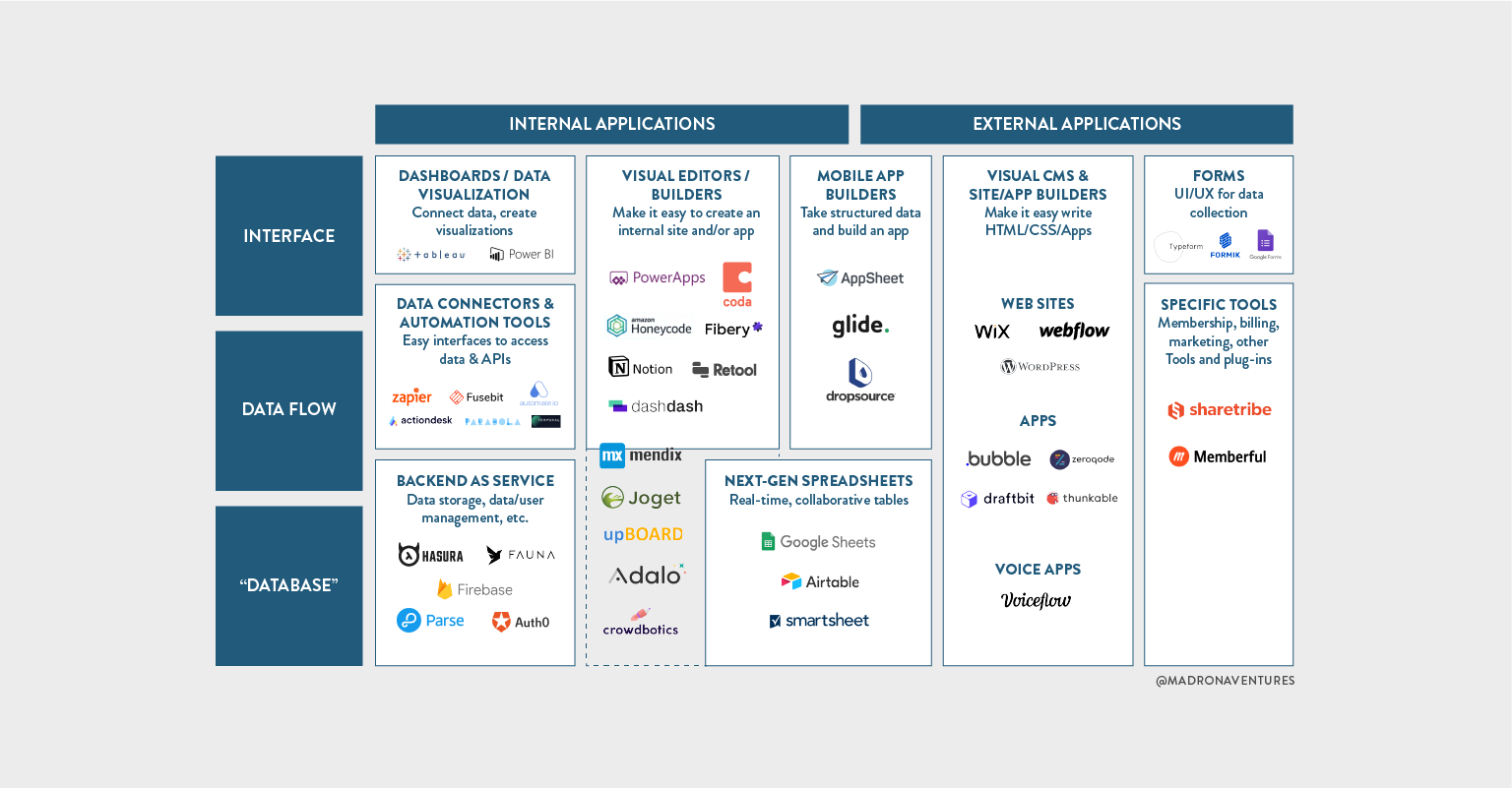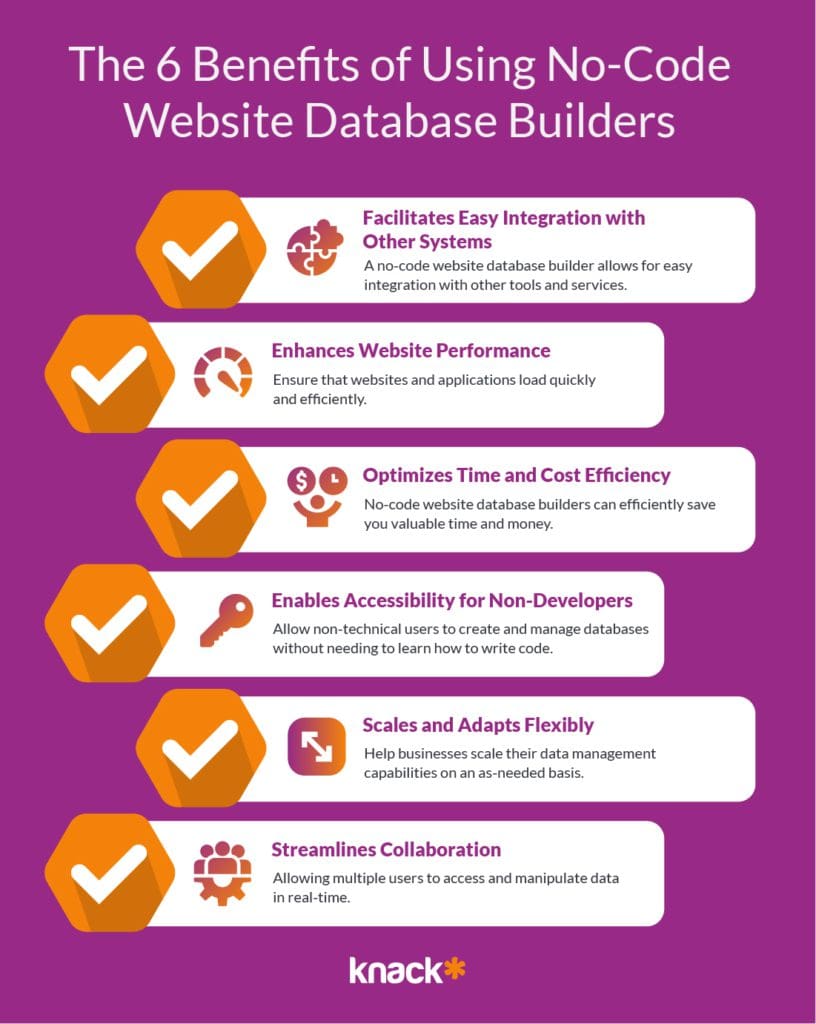No-Code Solutions for Open Platform Database Production: Develop Without Coding Skills
No-Code Solutions for Open Platform Database Production: Develop Without Coding Skills
Blog Article
Discovering the Advantages of Scalable Databases That Need No Coding Skills for Effective Information Monitoring Solutions
The introduction of scalable data sources that eliminate the requirement for coding abilities presents a transformative opportunity for companies looking for effective data monitoring services. As we consider the implications of such developments, it becomes critical to check out how they can improve the landscape of information management and drive lasting growth in a competitive environment.
Boosted Ease Of Access for Individuals
Boosted ease of access for individuals is an essential aspect of scalable data sources, making certain that data monitoring systems are instinctive and user-friendly. In an age where data-driven decisions are paramount, availability allows a bigger array of individuals, consisting of those without comprehensive technical competence, to involve with database systems properly. This democratization of information accessibility assists in enhanced partnership across divisions, equipping workers to draw out insights and make educated choices.
Easy to use user interfaces, such as visual data and drag-and-drop attributes representation, simplify complicated data interactions. These improvements reduce the knowing curve related to standard data source monitoring, allowing individuals to concentrate on leveraging information as opposed to coming to grips with technical intricacies. Furthermore, scalable data sources often include real-time analytics and adjustable dashboards, offering customers with immediate insights tailored to their specific demands.

Cost-Effectiveness and Source Cost Savings
Reliable data management not just depends upon availability however also on cost-effectiveness and resource cost savings. Scalable data sources developed for customers with no coding skills considerably reduce economic worries commonly connected with traditional database management systems. By getting rid of the requirement for specialized shows proficiency, organizations can designate their sources much more effectively, concentrating funds on core business tasks rather than extensive training or employing experienced workers.
Moreover, these data sources often use cloud-based solutions, which even more decrease prices associated with equipment and maintenance. Organizations can scale their data source remedies according to their needs, avoiding the costs sustained from over-provisioning resources. This flexibility indicates companies can adjust to altering demands without incurring unneeded prices, resulting in significant long-lasting cost savings.
Additionally, straightforward interfaces simplify information entrance and monitoring processes, lowering the moment invested in administrative tasks. This effectiveness converts right into labor price financial savings, permitting groups to focus on tactical efforts as opposed to routine upkeep. Overall, adopting scalable databases that need no coding abilities cultivates a much more affordable approach to information management, making it possible for companies to maximize their sources while maintaining high degrees of functional effectiveness.
Improved Cooperation Throughout Teams

Moreover, scalable data sources facilitate seamless communication among staff member. With user-friendly interfaces that call for no coding abilities, employees can easily create, change, and share records or control panels customized to their particular requirements. This democratization of data equips non-technical individuals to contribute understandings, improving the joint setting.
Furthermore, these databases sustain concurrent access, enabling several customers to deal with the exact same dataset all at once. This attribute enhances performance, as teams can take part in joint information evaluation without the threat of variation control problems. The site here capacity to leave comments or notes directly within the data source better advertises dialogue and clears up information analyses.
Streamlined Data Management Processes
In today's data-driven setting, organizations identify the need of structured data administration processes to make the most of efficiency and accuracy. By leveraging scalable data sources that require no coding abilities, services can streamline their information handling and minimize the complexities usually connected with conventional database systems. This availability empowers non-technical customers to involve straight with data, promoting quicker decision-making and lowering dependence on specialized IT personnel.
Streamlined information monitoring procedures boost operations by automating regular jobs such as information entry, recognition, and reporting. Automated information combination makes sure that info from numerous resources is accumulated perfectly, getting rid of silos and cultivating a combined view of vital organization metrics (no-code). Easy to use user interfaces allow workers to manipulate information conveniently, enabling them to produce understandings that drive strategic efforts without the need for substantial training.
This efficiency not just speeds up operational processes yet likewise minimizes the capacity for human error, ensuring that information remains trustworthy and accurate. Ultimately, structured data management processes through scalable data sources cause boosted efficiency, permitting companies to concentrate on core activities while making sure that their information administration techniques are effective and reliable.
Scalability for Growing Organizations

For increasing ventures, the ability to scale up or down is vital. A scalable data source can handle an influx of information created from new consumers, items, or services, making sure that service procedures continue to be nonstop. Moreover, these databases provide the capacity to handle peak tons successfully, which is necessary throughout periods of rapid development or seasonal spikes.
In addition, many scalable database remedies are designed with user-friendly interfaces that need no coding abilities, encouraging non-technical staff to handle information efficiently (no-code). This democratization of information management allows companies to allocate sources purposefully and lower dependency on specialized IT personnel
Eventually, taking on a scalable data source not only enhances operational efficiency but additionally fosters a setting where organizations can innovate and develop without the restrictions of traditional data source systems. This adaptability positions organizations for long-lasting success look at these guys in today's affordable landscape.
Verdict
Finally, scalable data sources that need no coding skills supply substantial advantages for efficient data administration. These systems improve access for non-technical customers, lower operational expenses, and advertise cooperation across teams. By enhancing data management processes and providing scalability for expanding businesses, such remedies make it possible for companies to adapt to changing demands successfully. Ultimately, the adoption of these straightforward data sources promotes development and settings organizations for long-term success in a vibrant setting.
Boosted ease of access for individuals is an important element of scalable data sources, making certain that data administration systems are intuitive and user-friendly.User-friendly interfaces, such as aesthetic data and drag-and-drop functions depiction, simplify complicated data communications. Overall, adopting scalable data sources that call for no coding skills cultivates an extra cost-efficient approach to information management, allowing organizations to optimize their resources while keeping high levels of functional performance.
By leveraging scalable data sources that call for no coding skills, services can simplify their information handling and reduce the intricacies normally associated with typical data source systems - no-code.Structured data administration processes enhance workflow by automating routine tasks such as information access, recognition, and reporting
Report this page